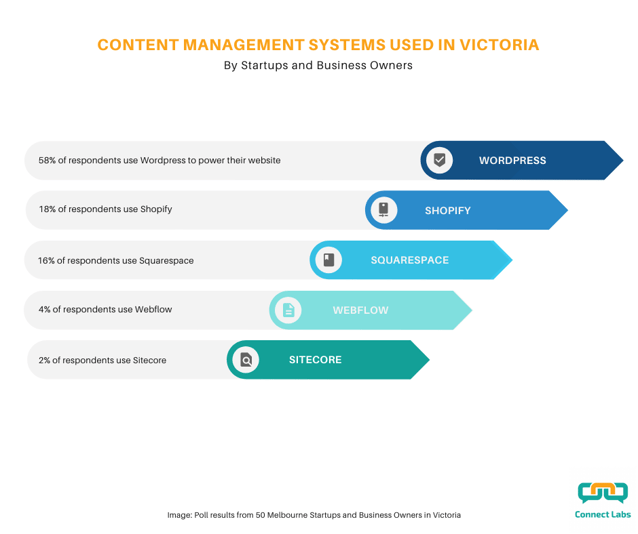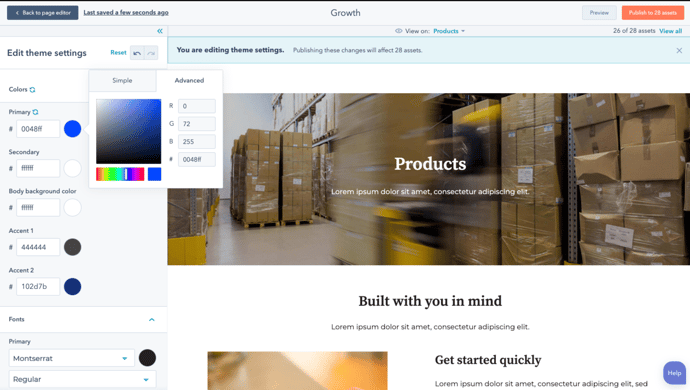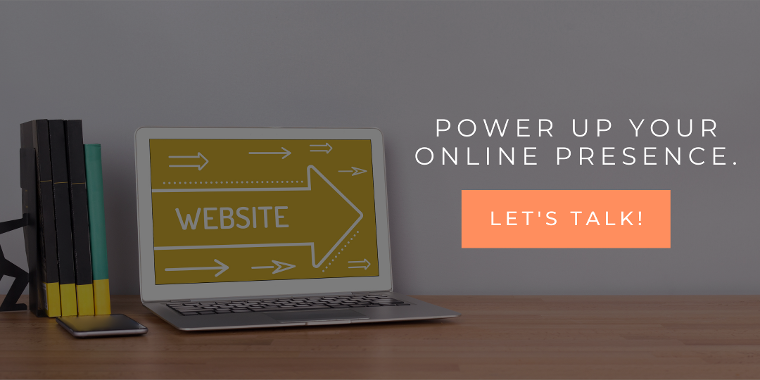By now, we're all quite aware that a website is necessary if you would like your business, well, to be a business. Your website is the main area where you communicate everything about your business: what you do, why you do it, what products you offer, when you or your customer support is available, etc, etc. It's also what enables you to get found by others to invest in you. It's your organisation's most important marketing asset. If your goal is to grow, which assumedly it is, you need to make sure you have a website that will grow with you.
As a business owner, you're working with a budget and especially when you're a small business, you want to make sure you see some sort of return on every dollar. So, when you're asking what's the most important thing to help your business grow or what's going to get you the greatest return on your investment, the answer is your website.
This doesn't mean you have to spend a lot on your website. It just means that you want to make the right decision when it comes to choosing your Content Management System or CMS. If you're not familiar or need a little clarification, a CMS is what allows you to edit your website from your domain. You just log-in and can edit the layout, settings and content. A few Content Management Systems you may have heard of are Wordpress, Joomla, Squarespace and our favourite, HubSpot (we'll touch on the reasons for this throughout this post).

There are a few elements of a CMS that are key for you to have a website that facilitates your growth and serves a vital part of your overarching growth machine.
1. How Simple It Is To Add & Update
As you grow, you're going to want to easily make changes to your website and add new pages to accommodate new products or content. For example, when you start off, you might just have a home page and a simple landing page to collect contact information. Perhaps as you grow, you want to start a blog to offer your contacts useful resources. The CMS you choose should make it easy to do this.
Content management systems by nature are meant to be approachable by non-developers, but that is not always necessarily the case. You should do a free trial of any system you're considering and make sure doing the following is straightforward to you.
- Updating fonts, colours, images, backgrounds
- Updating headers and footers
- Creating new landing pages
- Building new forms
- Updating menu navigation
Of course, there may be more depending on the complexity of your business model, but the above are non-negotiable. Ultimately, you should be in a position where when you want to make changes, you can, and then whenever you have more budget or want advanced customisation, you can bring on a developer.

HubSpot's CMS has themes and templates you can use to quickly create new pages and its drag-and-drop modules make it easy to move things around to achieve your perfect layout. A non-developer could make and change a website without many issues; however there's also lots of potential for further customisation with developer help as you scale.
2. Personalisation Capabilities
As consumers are expecting more and more personalised experiences, you need to make sure the CMS you use can offer that to a certain extent. There are varying levels of personalisation. At a minimum, you'd like to be able to greet a contact by name. At a more advanced stage, you could customise the pages specifically based by your contacts' behaviours. How much you can or want to personalise content heavily depends on where you're at with your business, but knowing you can achieve it at a base level can make a huge difference in building customer loyalty and business growth.
With a CMS like HubSpot, the personalisation capabilities at your disposal depend on the plan that you select, but from its base, you have the ability to use personalisation tokens across your pages.
3. How much simpler it makes your lead nurturing
As we've detailed, your website helps you get found. You'll also assumedly use it to collect information from leads so that you can nurture them further. Generating a lead is only as valuable as how well you nurture it. So when selecting your CMS, you want to consider how it connects with your customer relationship management system (CRM), your email marketing system, any automation you have as well as where you track sales, as these are the tools you'll be using for your customers' journeys from being leads to paying customers.
With the HubSpot CRM, the CRM tools are in the same platform as its free CRM as well as its Marketing, Sales and Service Hub tools, so everything is in one place. This eliminates any time you might take jumping between systems and makes the passing of information between the CRM and CMS seamless.
4. Site Speed
Site speed is an obvious must-have as it can impact your SEO and how long people stay on our website. If your website loads slowly, people won't waste their time waiting. Google also gives preference to faster sites. When searching for a CMS, you should look for features like automatic image compression, minified javascript, combined CSS files and page caching.
We also should note that the web hosting provider will affect your site speed. For this, you should consider the amount of traffic you get and how much you anticipate that growing, features you need or might need to facilitate payments for products or services, security and your budget. Popular options include Bluehost and GoDaddy. Or with HubSpot's CMS Hub, website hosting is included. One less thing to figure out!
5. Security, Reliability & Maintenance
Security breaches can create huge, detrimental issues for your business, so choosing a secure system is a priority. You want your potential and existing customers to feel secure when they are browsing your website, especially if you're collecting information or managing transactions. Your CMS should have inclusions like SSL, web application firewall and global CDN to manage increasing traffic and create trust between you and your website visitors.
Additionally, you want to consider the level of upkeep required to maintain your website and the customer support you'll have at your disposal if something goes wrong. Some CMS options require more updates or experience more outages than others, and the more plug-ins and integrations you have, the more maintenance you will have. As there's always the chance something will go wrong, though, the most important element is having access to customer support.
One final very important consideration with your website and overall tech stack is your time. How much time do you want to spend building web pages versus having conversations with customers? Or how training someone on how to use your CMS?
The more complex a system is the more time and energy it will take for you to manage it. With a system like your CMS that is so vital to your growth, you deserve to find one that will simplify your life and help you scale.
HubSpot recently announced their CMS Hub Starter which starts at just AU$34 per month. If you're interested, get in touch - we'd be happy to give you a tour!
Tags:
Websites + CMS
September 27, 2021

